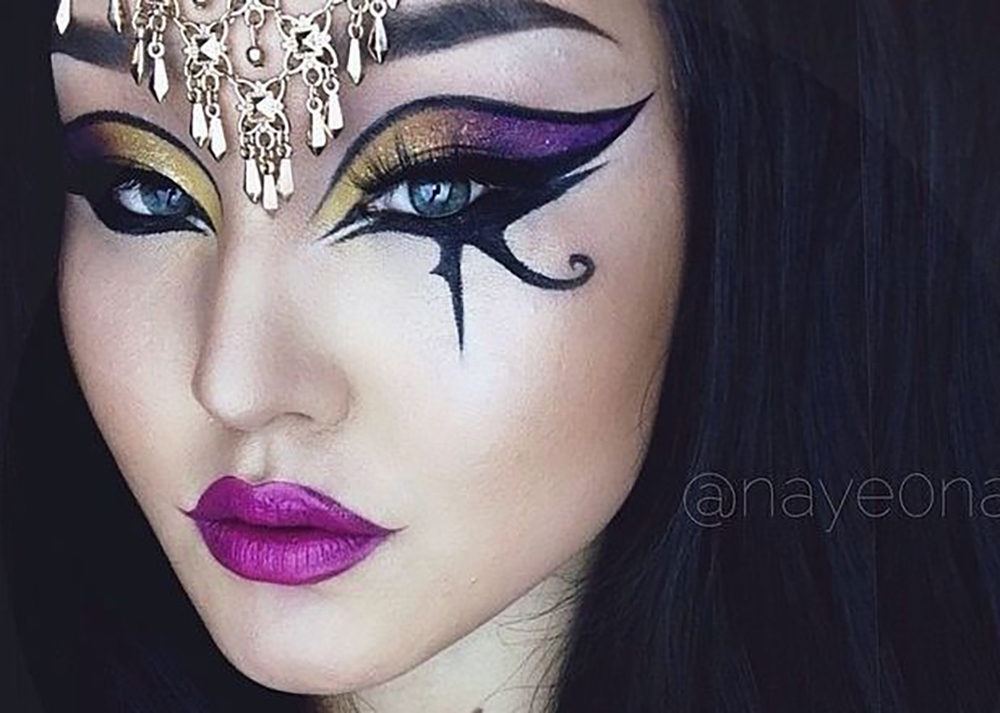Bernice Afriyie | Arts Editor
Featured image: Making it as a makeup artist has a lot to do with establishing a strong online presence. | Courtesy of Sabrina Owusu
The fine arts are always slammed in higher education circles, with many critics saying that the arts can be learned through tutorials or on the job.
Pursuing an education in the fine arts is a hefty expense that goes beyond textbooks; film students must weigh out the benefits of renting equipment or interning on sets and visual artists must consider whether they want formal training in schools or whether they want to develop their own unique form by freelancing.
The same conversations are relevant in the word of cosmetology. Beginning and professional makeup artists, referred to as MUAs in the makeup world, must decide if cosmetology school is worth the costs.
“There is so much knowledge out there on the internet that upcoming makeup artists have available to them today that there isn’t a need to go to school for it,” says Sabrina Owusu, a freelance makeup artist and political science student.
“You can learn so much from watching MUAs on Instagram or YouTube that a piece of paper may not give you. You ultimately learn about the makeup craft by experimenting with different products on different faces,” she says.
Over the course of a makeup certificate, aspiring artists pay for a set amount of teachers, whereas following makeup artists and brands online affords aspiring artists the ability to learn from endless mentors. What can’t be taught online or in school is creativity and drive.
“Just like any other form of art, it requires imagination, creativity and skill to be able to work on different canvasses—like a painter.
“Like a photographer, you have to know someone’s best angles and what to focus on and what not to focus on. Like a writer, you have to know characters and personas and create different looks for each client. It may sound overly poetic, but that’s really what it comes down to as a makeup artist: having a vision,” says Owusu.
However, for aspiring makeup artists, having a vision and skill is only half the requirements for success. Like any trade or art, there’s an element of branding and luck that is essential, even more so for makeup artists when we consider the major role social media plays in the scene.
“You need to brand yourself and get out there,” stresses Owusu.
“As artificial and shallow as this may seem, especially because we are talking about makeup, the more popular you are on social media platforms, the more likely you are to get gigs, [collaborations] and bookings.”
Cosmetology is not for the timid or shy and especially not for those who are not tech-savvy. Being a makeup artist in today’s world is intertextual, involving more than just blushes and eyeshadows. Knowing how to create visually stimulating videos or photos of makeup is essential to a makeup artist’s success if they are trying to break out on Instagram. With that comes knowledge of photography, lighting, film, lens editing, sound editing and camera settings.
“It’s extremely expensive,” admits Owusu. “I do make a slight profit sometimes and sometimes I break even. The money that I make from clients, however, I use to invest into my business.”
For Owusu and many other starting makeup artists, especially those pursuing other interests or working part time, cosmetology takes second priority out of financial need. Yet in the same sense, it’s costly to fund the tools needed to be a makeup artist while staying trendy and offering clients the products they need.
The financial burden alone that makeup artists go through, coupled with the overly saturated amateur makeup trend, makes the struggle of these artists just as valid as the ones that artists in other disciplines face.


